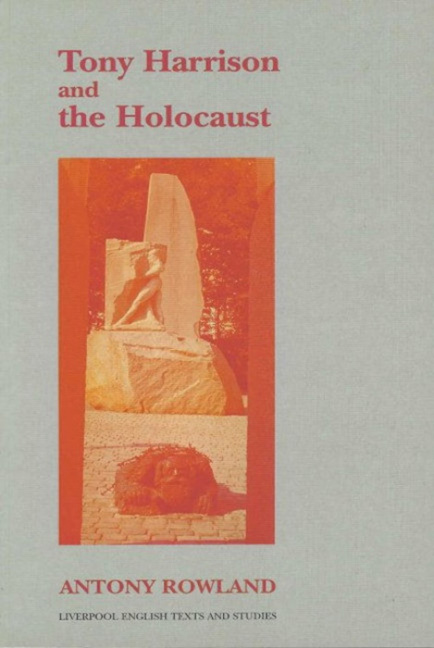Book contents
- Frontmatter
- Dedication
- Contents
- Acknowledgements
- Introduction
- 1 Cinema, Masturbation and Peter Pan: A Non-Victim Approach to the Holocaust
- 2 Amorous Discourse and ‘Bolts of Annihilation’ in the American Poems
- 3 Mourning and Annihilation in the Family Sonnets
- 4 The Fragility of Memory
- 5 Culture/Barbarism Dialectics in Harrison's Poetry
- Bibliography
- Index
4 - The Fragility of Memory
- Frontmatter
- Dedication
- Contents
- Acknowledgements
- Introduction
- 1 Cinema, Masturbation and Peter Pan: A Non-Victim Approach to the Holocaust
- 2 Amorous Discourse and ‘Bolts of Annihilation’ in the American Poems
- 3 Mourning and Annihilation in the Family Sonnets
- 4 The Fragility of Memory
- 5 Culture/Barbarism Dialectics in Harrison's Poetry
- Bibliography
- Index
Summary
Nuclear Memory
If Harrison's poetry is read as a whole rather than as a collection of individual pieces, the Holocaust, Hiroshima and the threat of nuclear war function as extrinsic tropes that affect any intrinsic depiction of transience or mortality. My chapter on mourning has illustrated how, for Harrison as well as for other modern poets, these metaphors have radically transformed the genre of the elegy, with its traditional movement towards reconciliation and consolation. The following section will engage with the concepts of memory and memorialisation, which, along with mourning, are central tenets of this aristocratic poetic form. Whereas grieving suggests a process that might evoke melancholic infinitude, however, memory-work may be presented as instigated by the moment in which ‘true’ mourning ceases. Given the multitude of problems involved in remembering some of the worst atrocities of the twentieth century, this positive psychological phenomenon might be regarded with suspicion. Survival will prove to be a major theme of the texts in this chapter, but it could be countered that Harrison ‘survives’ only as a post-Holocaust poet with little access to the atrocities he mentions. Primo Levi's true witnesses – those that died in the camps – do not get much of a voice in a poetry concerned more with the proclivities of the elegy. This is why the sonnets tend to engage with twentieth-century history only indirectly: Alzheimer's patients, lovers and Tony Harrison are the subjects of the poems that follow; nevertheless, as in the family sonnets, the Holocaust and nuclear war remain as shadows outside the text which inform any reading of his work. Modern elegies that espouse anti-humanist, anti-therapeutic and anti-sentimental viewpoints do not emerge out of these extrinsic concerns: Harrison's memory-work stubbornly operates as an act of artistic salvage, not nihilism.
The process of memory consists of a constant sifting of images which inform, and are affected by, changing notions of individual and national identities. Private memories are composed of broken narratives that represent (possible) past events. Public memorialisation collects individual recollections into a unity which seems to promise, but never delivers, an objective response to historical phenomena. Memory and memorialisation need to be distinguished from similar abstractions, such as remembering and remembrance.
- Type
- Chapter
- Information
- Tony Harrison and the Holocaust , pp. 195 - 247Publisher: Liverpool University PressPrint publication year: 2001



